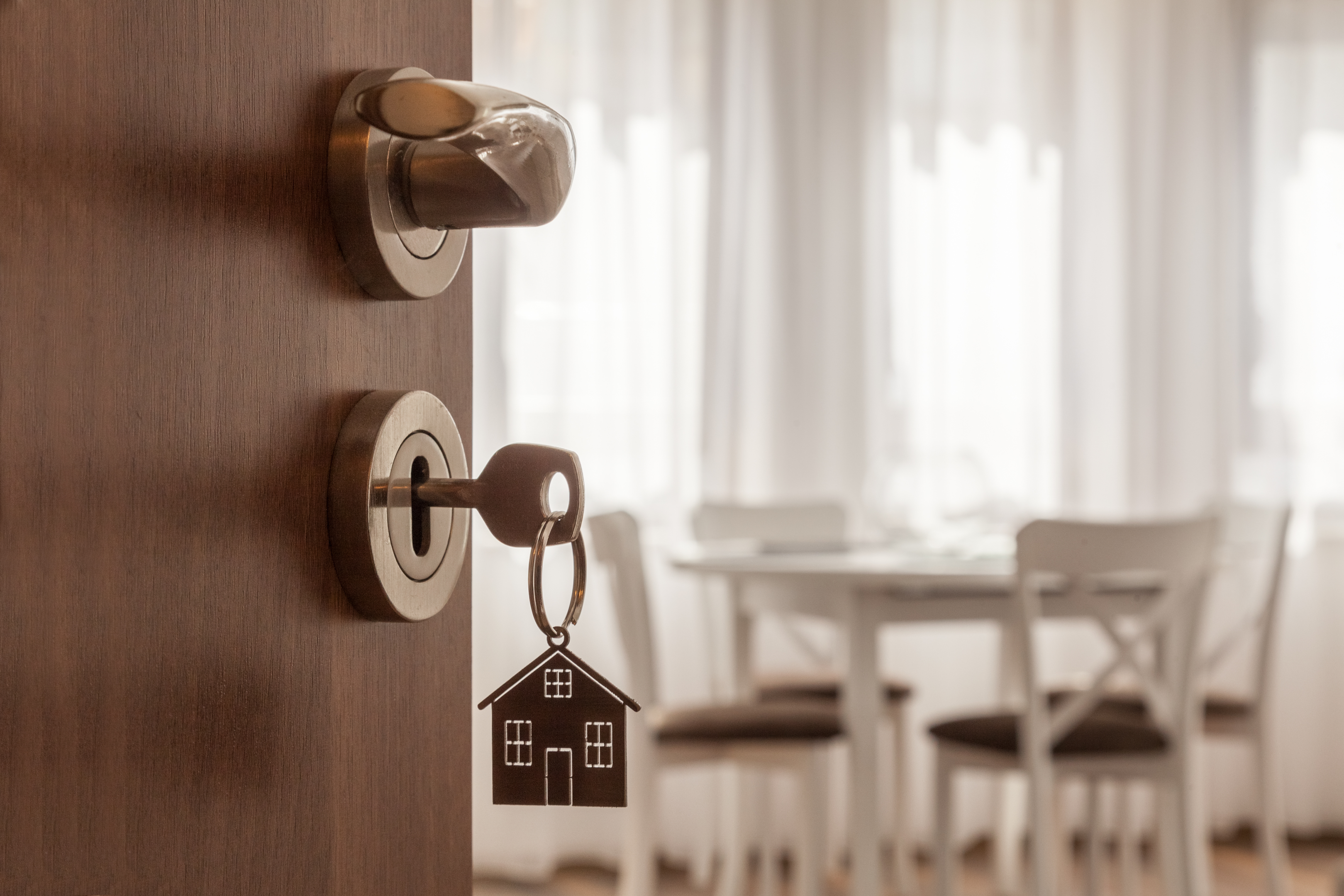How to Deal With Booking.com Complaints

Renowned online booking website Booking.com boasts an array of hotels and vacation rentals. Short term rental hosts can showcase their properties, and customers can search and book their ideal place to stay. However, from time to time problems occur, and this can lead to complaints.
Even the most proficient host can run into unexpected problems, so you need to be prepared to deal and resolve guest’s grumbles when things aren’t working out. As a property manager or host, you’ll benefit from a good understanding of the Booking.com complaints procedure. If you’re not familiar with this don’t worry, we have a handy overview to share with you.
As well as getting to grips with the system, successful hosts understand the importance of streamlining operations and using management tools. Read on to find out more about creating effective strategies to prevent and address complaints and enhance customer experience.

Complaints Procedure
Clients can make contact, leave feedback and raise complaints relatively easily via the site. “Live Chat” offers support to guests and is the most effective way to make contact and resolve issues. The customer logs into their account, heads to the customer service section, and clicks on “Live Chat.”
A company advisor should be able to help. Alternatively, the customer can make contact by phone (there’s an international phone number) or send a message by email via the website mailing address.
As well as sending a message, providing feedback, and raising complaints, the customer can also leave a review. The review can be posted under the real name of the person, or via a nickname. Some prefer to remain anonymous. The website typically establishes contact 48 hours after check-out to request they leave a customer review. Some people respond quickly, but guests have up to three months to post a response.
Hosts are keen to secure good reviews, and each customer is encouraged to express an honest opinion. Booking.com routinely examines reviews before posting and any that are deemed inappropriate are erased. The customer can also contact the website if they have a technical issue. This can be done via the Extranet or the Pulse app.
Complaints – Reservations and Refunds
Some problems relate to a request for a refund, a booking reservation, or problems regarding booking confirmation. As a host, you’ll need to decide on and confirm your cancellation policy. Will you offer a full or partial money refund if a person decides to contact you to cancel their booking or will you operate a no refund policy?
You need to be clear on this subject to avoid any miscommunication with the customer. If you are offering a refund, make sure you do so in a timely fashion, a delay in contacting the customer could lead to more problems.
Addressing Complaints
Common customer complaints include issues relating to room cleanliness, property facilities, overall experience, and customer service levels. You can minimize the risk of complaints by being organized, and managing your rental business efficiently. Maintain contact with your customer by phone or messaging via their mailing address. We’ve identified some of the common issues and pinpointed ways you can avoid and address them.

Cleanliness and Maintenance
Unsightly stains on upholstery or bedding, hair in plugholes, dust on radiators, and sticky room floors are avoidable, so make sure your cleaning routine is up to scratch. Automating your room cleaning schedule will help you stay on top of everything. You can issue a housekeeping schedule to your team (outlining all tasks) and stay in contact to monitor progress and performance.
Hosts are responsible for building and room maintenance too. Your customer will be dissatisfied by loose handles, leaky roofs, and other fixable problems, and could ask for compensation. Draw up a maintenance schedule complete with regular checks to minimize issues.
From time to time your customer may encounter unexpected problems. Emergencies such as no hot water need to be dealt with immediately, while other concerns should receive prompt attention too. Once you’ve dealt with the issue make sure you contact the customer to verify all is well.
Booking Confirmation Issues
Visitors have high expectations, so it’s no surprise they get upset when there are booking problems. You are responsible for monitoring bookings correctly, but human error can and does happen, especially when you’re juggling multiple properties.
No host wants to deal with issues surrounding double bookings, there’s nothing worse than having to contact a customer by phone or message to deliver bad news. Avoid difficult situations by maintaining control of your booking calendar. Vacation rental software can help with this as it allows you to view bookings at a glance, and monitor changes and cancellations.
Pricing and Payment
If you’re advertising across a variety of platforms, try to ensure pricing and payment terms remain consistent. If your customer has to pay more money to book on one platform than another they are going to be disgruntled.
It’s also wise to make sure any fees are transparent e.g. late or early checkout fees, tourist taxes, etc.
Facilities and Amenities
Your customer will expect the property description to match your rental, if it’s not you might receive a negative review. If you’ve advertised a top-notch kitchen with a state-of-the-art coffee machine and pasta maker, make sure you provide it. Bonus extras should be spot on too, so if your write-up states your bathroom boasts fluffy towels make sure that’s what’s hanging on the heated rail.
Appliances need to be in good working order too. If a person complains that something is broken or not up to scratch, make sure there is someone on hand to carry out repairs or provide a replacement item.
Occasionally someone might get in touch to say they aren’t happy with the temperature of the property, or can’t figure out the Wi-Fi. In these situations, assist in making your visitors feel more at home. Providing extra blankets, adjusting the thermostat, patiently explaining how to connect to the Wi-Fi, etc are all things you can do to help ensure your visitors enjoy their stay.

Check-in and Check-out
Avoid misunderstandings and upset by making sure visitors are clear on check-in and check-out procedures. State times in advance and let your customer know if you offer an early/late check-in and out. If you are offering an early check-in, make sure rooms are ready by communicating with your cleaning team so the rooms are turned around in time and still cleaned to the same high standard.
People can get cranky, especially after a long journey, so provide accurate directions and clear details on parking, how to access the property etc.
Send a message reminder before your visitors arrive e.g. “We’re looking forward to your arrival tomorrow, check-in time is from 3 pm and your access code is 1234.”
If visitors are struggling to find the property or to access it, try and reply to their call or message quickly to give them a helping hand.
It’s worth considering self-check-in as this will reduce hassles in terms of waiting around for late arrivals or problems associated with guests waiting for you. If you’re running late guests could be left hanging around and that could lead to annoyance and complaints, and you don’t want their break to start in a negative light.
Communication and Customer Service
There are plenty of complaints related to lack of contact, misunderstandings, poor customer service and the inability to resolve problems. As a host, you need to avoid this by cooperating with customers. Make sure you answer messages in a timely fashion and keep guests updated if there are any changes or problems.
Dealing with Negative Feedback and Complaints
Understandably, hosts and property owners often find complaints challenging. Booking.com encourages partners to file a report with the Dispute Resolution Center if they feel the complaint is unfair. However, feedback and constructive criticism can be useful and can help hosts improve their rentals and provide a better guest experience.
Polite and prompt response
Guests like to be heard so always do your best to respond promptly. If you ignore guest niggles, they are likely to turn into full-blown complaints. Send confirmation you have received their complaint and offer support within a set time-frame.
Pay attention to the problem, even if you don’t agree with everything they say. A polite response will always be welcome as it could defuse the situation and it could be the difference between a bad and good review.

Say thank you and show empathy
Thank your guests for contacting you to bring a complaint or issue to your attention. Show support and empathy by acknowledging a particular element of their stay isn’t as perfect as you or they hoped.
You might think a customer is overreacting by contacting you to say one of their pillows is too lumpy, but it’s better to supply another pillow than risk a poor review for not assisting.
Apologize if the situation warrants it
Sometimes all you can do is apologize, especially if a situation has caused your guests a level of discomfort. Perhaps the boiler broke down halfway through your guest’s stay and they were without heating and water for a period.
This would cause anyone to be a little disgruntled even if you managed to get things sorted quickly. Don’t be tempted to downplay the situation, or add a “but” after your apology, this could cause more annoyance.
Take action
When you receive a complaint or guests inform you there’s an issue make sure you act. Your first port of call is to acknowledge there’s a problem. You then need to tell your guest what you’re going to do to put things right. If a full resolution is not possible acknowledge that too. Do what you can and let your guest know you’re pulling out the stops to improve the situation.
Follow up
If the initial complaint turns into a negative review don’t panic. It could be that you responded positively and made upgrades and modifications since the complaint. Explain what you’ve done to rectify the situation as this indicates you care about making sure your guests enjoy a great experience.
Reach out
If you feel you have addressed the issue and the customer seems satisfied, you might want to think about making contact to invite them to stay again at a later date. Unhappy guests can become happy guests if they feel you’ve made every effort to help. Maybe you can offer an incentive by way of special offers e.g. a discount on their next booking, this could be a nice way to sweeten the deal and bridge any ill feeling.

A Proactive Approach to Complaints
A proactive approach is key. As a property owner you need to provide a concise and accurate write-up of your rental, offer a simple booking system, communicate clearly with guests, and make sure your accommodation is top-notch. If you do receive a complaint or message regarding the property or booking, deal with it promptly. Always maintain a friendly and professional stance.
The aim of the game is to obtain that all-important positive feedback, which is the key to improving your rankings and attracting even more bookings. More bookings equal profit, so it’s worth putting in the effort to propel your customers to tell everyone what a great experience they had.
While dealing with complaints and negative feedback can be daunting it doesn’t need to be the end of the world. Try and view constructive criticism as a good way to move your business forward. Show that you’re a caring host who really wants to offer guests a top-notch experience and enjoy a wonderful trip.
If you’re looking to minimize risk and address complaints you’ll need to be organized and in control of your property rental business. Vacation rental software can prove useful as it can save time, and save you dollars. You can use software to streamline operations and automate systems.
Keep track of costs and customer payments, monitor booking requests and communicate with customers, deal with booking issues, organize your cleaning team, stay abreast of property maintenance, and stay in control.
Why not give iGMS vacation rental software a try?





![Your Monthly iGMS Roundup [February 2020]](/content/images/size/w600/wordpress/2020/02/igms-roundup-feb-2020-cover.png)

